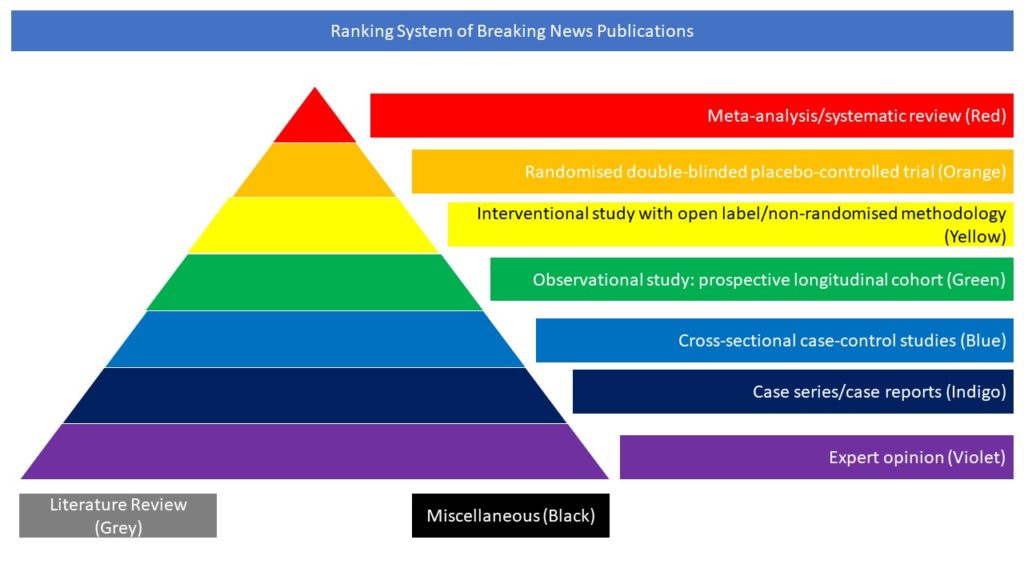Cross-sectional case-control studies (Blue)
In this study the authors conducted a prospective case–control study comparing the prevalence of hypothyroidism in patients with prolonged COVID- 19-induced hyposmia/anosmia (>40days) versus age-matched and sex-matched patients with COVID-19 without subjective and objective olfactory disorders, at a referral centre in Athens, Greece between 22 May 2020 and 15 January 2021. Olfactory function was objectively assessed using the three-odorant test Quick Smell Identification Test (Q-SIT; Sensonics, Haddon Heights, New Jersey, USA). A total of 12 cases (25% men, median age 45 years; IQR: 26–53) with prolonged anosmia/hyposmia (as the only lingering symptom of COVID-19, along with taste disorders in seven patients) and 24 controls (38% men, median age 48 years; IQR: 36–59) were included. Cases were all PCR negative at the time of inclusion, while the control subjects consisted of a mixture of post-COVID-19 (PCR negative at the time of recruitment, n=8) and PCR-positive patients (n=16) with mild disease. A medical history of hypothyroidism had a higher prevalence (50% vs 8%; p=0.009) among cases than in controls. All subjects with hypothyroidism (n=8, six cases and two controls), had a medical history of autoimmune thyroiditis, treated with oral levothyroxine supplementation. History of normal thyroid function in cases and controls was confirmed by measuring thyroid hormone levels (TSH, fT3, fT4) during admission. After adjusting for potential confounders (age and sex), hypothyroidism was independently (p=0.021) associated with higher likelihood of persistent olfactory dysfunction among patients with COVID-19 (OR: 21.1; 95%CI: 2.0 to 219.4).
Tsivgoulis G, et al. Hypothyroidism is associated with prolonged COVID-19-induced anosmia: a case-control study. J Neurol Neurosurg Psychiatry. 2021 Apr 20:jnnp-2021-326587. doi: 10.1136/jnnp-2021-326587








